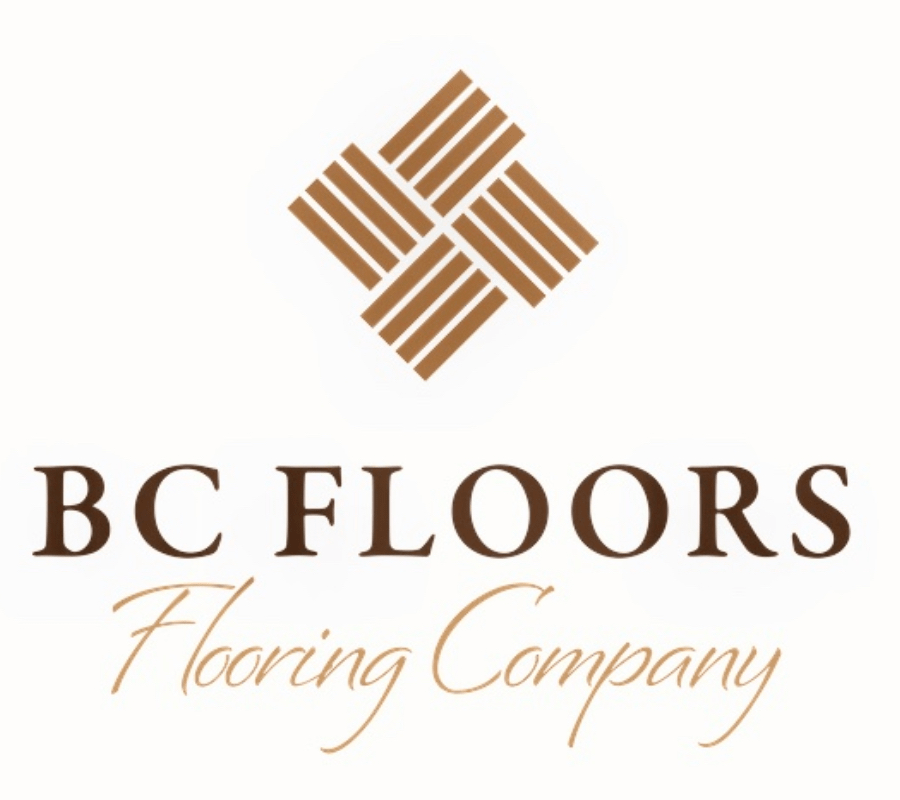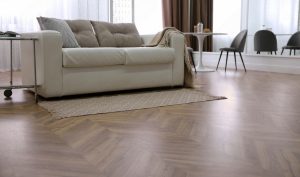When it comes to selecting the perfect flooring for your basement, vinyl tiles for basement emerge as a standout option. They combine practicality with aesthetic appeal. As a homeowner, you’re likely seeking a solution that can withstand the unique challenges of basement environments. Traditional flooring options like hardwood or carpet may falter in these conditions. They can lead to warping, mould growth, or rapid deterioration. Vinyl tiles offer a compelling answer to this quest. They provide a blend of durability, moisture resistance, and style that’s hard to match.
The Advantages of Vinyl Tiles in Basement Environments
- Moisture Resistance: One of the primary benefits of vinyl tiles in basements is their exceptional moisture resistance. Unlike porous materials, these tiles block water, keeping your basement floor dry and mould-free.
- Durability: Vinyl tiles are engineered to withstand heavy foot traffic, impacts, and wear and tear. This makes them ideal for basements that serve multiple purposes, from laundry rooms to playrooms.
- Easy Maintenance: Keeping your basement floor clean and pristine is a breeze with vinyl tiles for basement. A simple sweep and occasional mop are usually all that’s needed to maintain their appearance.
- Comfort Underfoot: These floors offer a softer, warmer surface compared to concrete or ceramic tiles. This makes your basement more comfortable for extended use.
- Cost-Effectiveness: When compared to other flooring options, they provide an excellent balance of quality and affordability. This allows you to achieve a high-end look without breaking the bank.
Types of Vinyl Tiles Suitable for Basements
When selecting vinyl tiles for your basement, you’ll encounter several types, each with its own set of characteristics:
- Luxury Vinyl Tiles (LVT): This option offers the most realistic wood or stone look with textured surfaces mimicking natural materials. Thicker and more durable, it’s ideal for high-traffic basement areas.
- Vinyl Composition Tiles (VCT): A budget-friendly, highly durable choice available in a wide range of colours. While not as luxurious as LVT, it’s great for utility areas or basements where function matters most.
- Waterproof Vinyl Tiles: Designed for moisture-prone areas, these tiles feature enhanced water resistance, making them perfect for basements with moisture issues or in flood-prone locations.
- Interlocking Vinyl Tiles: These tiles offer a floating floor installation, ideal for basements with slight unevenness or moisture concerns. The interlocking system creates a tight seal, enhancing moisture resistance.
Cost Comparison: Vinyl Tiles vs. Other Basement Flooring Options
To help you make an informed decision, let’s compare the cost of vinyl tiles to other popular basement flooring options:
| Flooring Type | Average Cost per Square Foot (Installed) |
| Vinyl Tiles | $2 – $7 |
| Carpet | $3 – $11 |
| Ceramic Tile | $5 – $15 |
| Engineered Wood | $6 – $20 |
| Epoxy Coating | $3 – $12 |
As you can see, vinyl tiles offer a competitive price point. The wide range in cost for vinyl tiles reflects the variety of quality and styles available. This allows you to choose an option that fits your budget without compromising on performance.
Design Ideas: Stylish Vinyl Tile Patterns for Basements
Transforming your basement into a stylish living space is easy with the right vinyl tiles for the basement. Here are some design ideas to inspire your basement makeover:
- Wood-Look Planks: Create a warm, inviting atmosphere with vinyl tiles that mimic hardwood planks. Opt for a herringbone pattern for added visual interest.
- Stone-Inspired Tiles: Achieve a high-end look with vinyl tiles that resemble natural stone. Large format tiles can make your basement feel more spacious.
- Geometric Patterns: Use a combination of solid-coloured tiles to create eye-catching geometric designs that add a modern touch to your basement.
- Mixed Materials: Combine wood-look and stone-look vinyl tiles to create distinct zones within your basement, perfect for multi-functional spaces.
- Chequerboard Classic: A timeless black and white chequerboard pattern can add a retro charm or serve as a neutral backdrop for various decor styles.
Moisture Resistance: Why Vinyl Tiles Excel in Basement Settings
The moisture resistance of vinyl tiles is perhaps their most crucial feature for basement applications. Basements are notoriously prone to water issues due to their below-grade location and proximity to groundwater. This constant exposure to moisture can wreak havoc on many flooring materials, leading to warping, swelling, or mould growth. Vinyl tiles, however, are specifically designed to withstand these challenging conditions.
The secret to vinyl tiles’ moisture resistance lies in their composition and construction. Made primarily from PVC (polyvinyl chloride), these tiles are inherently water-resistant. The top layer of vinyl tiles is typically sealed with a protective wear layer that prevents water from penetrating the surface. This means that spills, humidity, and even minor flooding events are less likely to damage your flooring.
Durability Factor: Long-lasting Vinyl Tiles for High-Traffic Basements
Durability is essential when choosing flooring, especially for basements that serve multiple purposes and experience heavy foot traffic. The layered construction of vinyl tiles contributes significantly to their longevity.
- Wear Layer: The topmost layer protects against scratches, stains, and fading.
- Design Layer: This layer contains the colour and pattern of the tile.
- Core Layer: Provides stability and impact resistance.
- Backing Layer: Adds cushioning and sound absorption.
High-quality vinyl tiles often come with warranties ranging from 10 to 25 years, testament to their long-lasting nature. This durability translates to cost savings over time, as you won’t need to replace your basement flooring as frequently as you might with less robust options.
Common Mistakes to Avoid
There are some pitfalls to avoid, ensuring you get the best results:
- Neglecting Subfloor Preparation: A smooth, dry subfloor is crucial for proper vinyl tile installation. Skipping this step can lead to visible imperfections and reduced longevity of your flooring.
- Choosing the Wrong Thickness: Opting for tiles that are too thin can result in a less durable floor. For basements, look for tiles with a minimum thickness of 2 mm, with 3-5 mm being ideal for high-traffic areas.
- Ignoring Water Vapour Transmission Rates: If your basement has known moisture issues, ensure you choose vinyl tiles rated for high moisture environments and consider using a moisture barrier.
- Overlooking Expansion Gaps: Vinyl tiles can expand and contract with temperature changes. Failing to leave proper expansion gaps around the perimeter of the room can lead to buckling or separation of tiles.
- Mismatching Adhesives: Using the wrong adhesive can compromise the water resistance and durability of your vinyl tile installation. Always use adhesives recommended by the tile manufacturer.
Expert Recommendations: Top Vinyl Tile Brands for Basement Flooring
Here are some top brands recommended by flooring experts for basement applications:
- Shaw Floors: Known for their extensive range of luxury vinyl tiles with realistic wood and stone looks.
- Armstrong Flooring: Offers a wide variety of vinyl composition tiles ideal for utility areas and high-traffic basements.
- Mohawk Industries: Provides waterproof vinyl plank options that are perfect for moisture-prone basements.
- COREtec: Specializes in waterproof luxury vinyl tiles with innovative rigid core technology.
- Mannington: Offers high-quality luxury vinyl tiles with excellent durability and moisture resistance.
Summary
Vinyl tiles for basement emerge as a smart, versatile, and cost-effective flooring solution for basements. Their exceptional moisture resistance, durability, and wide range of design options make them an ideal choice for transforming your underground space. They can help turn it into a functional and stylish area of your home. By understanding the types of vinyl tiles available, you can avoid common installation mistakes. This allows you to create a basement floor that withstands the challenges of below-grade environments. Additionally, you can hire professional installation services to ensure the durability and long-term value of your basement flooring, enhancing the overall enjoyment of your home.

